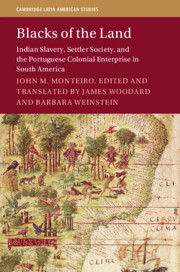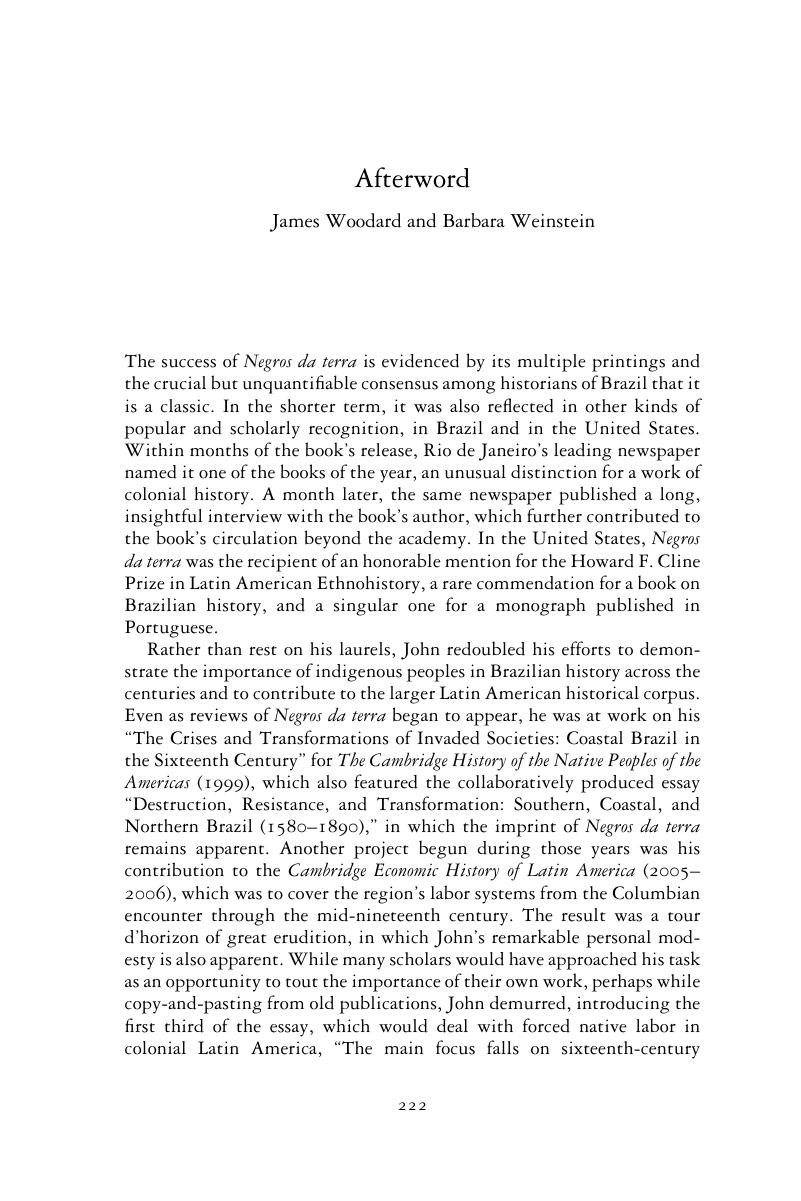 Blacks of the Land
Blacks of the Land Afterword
Published online by Cambridge University Press: 31 October 2018
Summary

- Type
- Chapter
- Information
- Blacks of the LandIndian Slavery, Settler Society, and the Portuguese Colonial Enterprise in South America, pp. 222 - 227Publisher: Cambridge University PressPrint publication year: 2018
